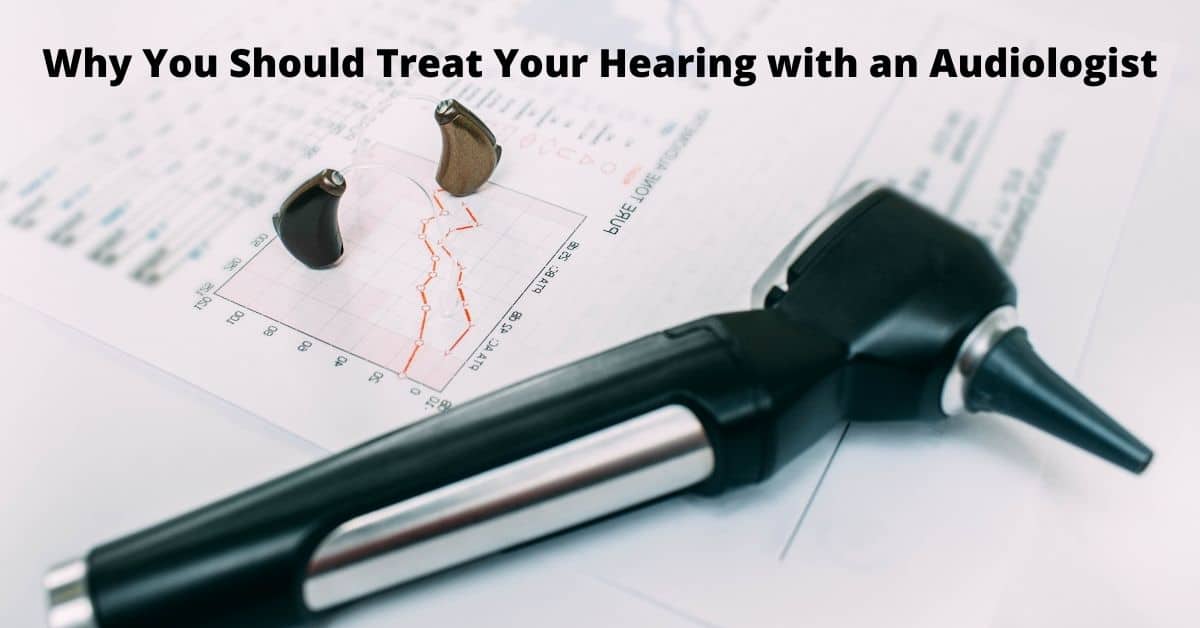- The Connection Between Hearing Loss and Dementia - July 30, 2024
- The Advantages of Rechargeable Hearing Aids - July 16, 2024
- How to Enjoy Music Festivals While Protecting Your Hearing - July 3, 2024
Over 48 million Americans today suffer from some form of hearing loss. With so many people in need of treatment, options have expanded well outside the auspices of the medical profession. While products that offer hearing augmentation appear in television commercials and in big box retail stores, a good set of hearing aids, prescribed and fitted by a credentialed audiologist, is still the best, most effective treatment.
What Is an Audiologist?
An audiologist is a doctor of audiology (AuD). Audiologists are members of the medical community, and you’ll find them in private practice as well as working in clinics, hospitals, educational institutions, rehabilitation centers, and long-term or residential health care facilities.
Audiologists have undergone a 4-year graduate program in audiology, in addition to a 4-year bachelor’s program. In addition to having their medical credential, audiologists are licensed or certified to practice by the state.
How Do I Know Whether My Hearing Healthcare Provider Is an Audiologist?
If you are receiving a hearing test as part of a medical doctor’s referral, whether at an audiologist’s private practice or another medical institution, your hearing test will be administered by an audiologist. Most audiologists in private practice advertise themselves as such. You can check their website or call to ask.
Non-audiologist hearing aid retailers are not allowed to charge for hearing tests. If you are offered a “free hearing exam,” it means you will not be dealing with a certified audiologist. It also means that your test results will not be considered an official diagnosis, so they will not be considered as part of your medical record and cannot be submitted for insurance purposes, meaning that your hearing aids will not be covered by insurance.
The Best Treatment
Audiologists provide the best treatment available. They are trained to look at all aspects of your auditory system, from the outer ear to the brain, to make sure the correct cause of your hearing loss is identified. They are better able to recommend the correct treatment for your hearing loss, whether that treatment is hearing aids, cochlear implants, or corrective surgery.
Audiologists are also versed in the causes of hearing loss, so any modifiable risk factors you have can be identified and addressed to minimize your risk of further hearing loss.
Optimal Hearing Aids
While you may have seen low-cost hearing augmentation options available on the market, the unfortunate reality is that you get what you pay for. Adjusting to proper hearing aids involves a process called “fitment,” where your hearing aids are programmed to provide treatment for your specific hearing loss.
There are as many hearing loss profiles as there are people with hearing loss, and fitment allows your audiologist to program your hearing aids so that you get the augmentation you need at the proper frequencies, and not at the ones you don’t. In addition to making your hearing aids more comfortable to wear, this also keeps them from causing further noise-induced hearing loss.
Fitment is a process that goes along with your adjustment to your new hearing aids. In all likelihood, the first fitment you receive will require some modifications once you experience your hearing aids out in the world. An audiologist is prepared to work with you until your hearing aids are comfortable and effective for you, day in and day out. Beware the hearing aid retailer that offers you the purchase of a set of hearing aids without expecting to see you again!
Guarantees and Warranties
A good set of hearing aids will come with a money-back guarantee, whereby you can return them for a full refund within a 30-90 day window if you decide you don’t like them.
Hearing aids are sensitive pieces of technology that live inside the relatively hostile environment of our ears. While everyone’s ears are different, most of us can expect our hearing aids to last 5-7 years. A manufacturer’s warranty should cover the cost of repair or replacement throughout that period.
An audiologist’s private practice will offer maintenance and repair services to keep your hearing aids working for you for years to come.
Hearing aids are an important and significant investment in your long-term health and well-being. By trusting an audiologist with your hearing healthcare needs, you ensure you’re getting the best multi-faceted treatment to keep you hearing your best for years to come.
Contact us today to schedule an appointment with our experienced audiologist!

